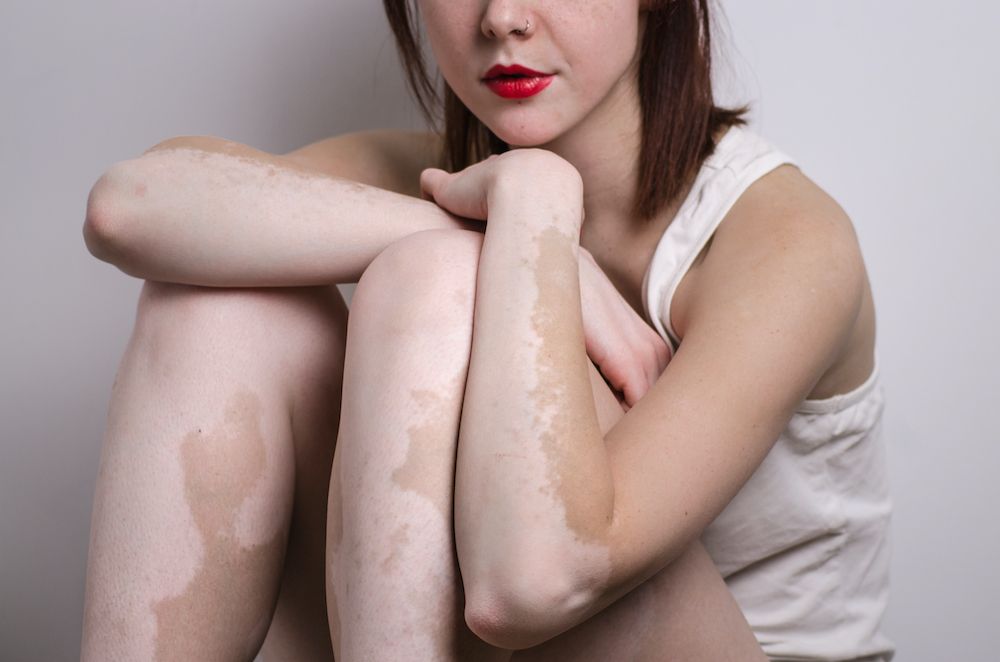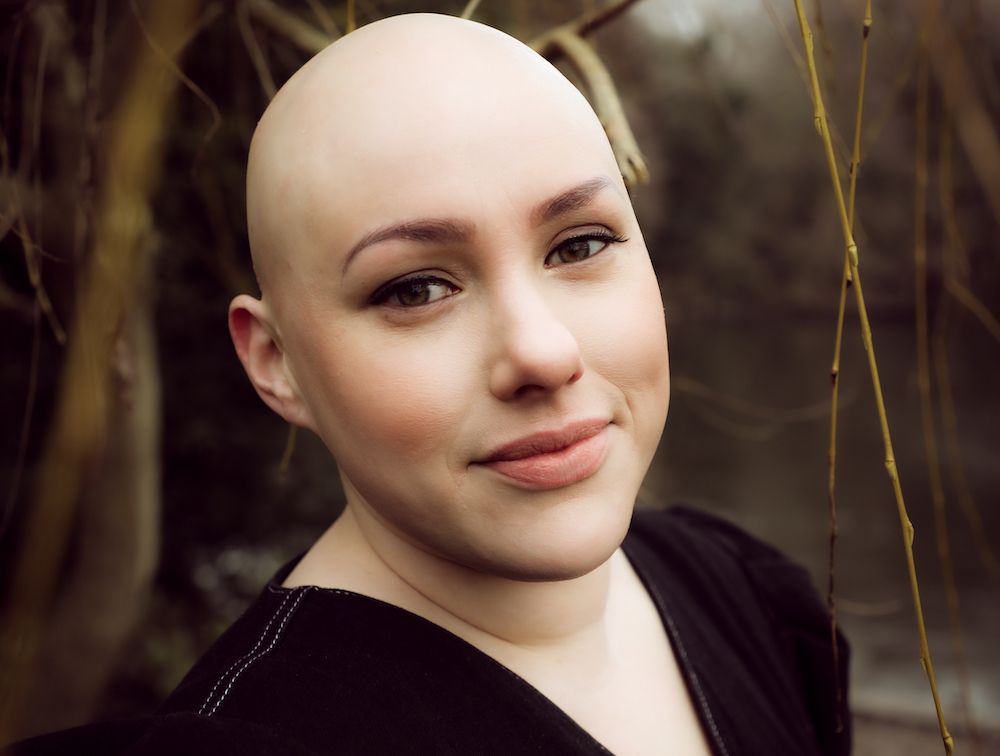A litmus paper for our minds: how skin tells our story
updated on Jul 20, 2021

It’s time we took a fresh look at the relationship between our internal and external selves
It’s made up of more than three million cells, renews itself every 28 days, and provides us with the sense of touch that keeps us safe and brings us pleasure, and yet we often give our skin a hard time. Of course, we do so because our skin is so much more than the literal organ that covers our bodies. Our skin is what we face the world with, and the world responds accordingly. Plus, considering how we’ve spent most of our lives being told what it should look like, it’s no wonder that the appearance of our skin is so deeply linked to our sense of self-esteem.
Shedding shame, or an idea of not being ‘good enough’, will never happen overnight, but wherever you are on your skin journey – whether you’re looking to embrace stretch marks, scars, skin conditions, or ageing – here, we’re exploring the stories that our skin tells, and inviting you to join us in reframing your relationship with the skin that you’re in.
A litmus paper for our mind
A study commissioned by E45 found that a massive 81% of us have experienced a skin problem, making it a topic almost all of us can relate to. With that in mind, another study published in the The British Journal of Dermatology found that those with acne are 63% more likely to experience depression than those who have clear skin.

Beyond that, there’s a vicious cycle going on. There’s a clear relationship between our diet and our skin – when we eat a varied and healthy diet with plenty of water, we might be able to tell by the way that our skin responds – but this is also the case for our mental health.
From deep below the surface, our mental state shows itself on our skin. Periods of high stress and low mood can make pre-existing conditions worse, or we may find that we break out in certain areas of our body which, in turn, can worsen a low mood and add to our mental load.
Although difficult to break free from, there is a chance here to reframe our thinking. Sometimes, periods of poor mental health can sneak up on us without us realising. And it’s possible that feelings of stress, anxiety, or low mood will show themselves to you on your skin before you fully realise what’s going on. Like a litmus paper for your mind, your skin may be laying out what’s going on within, on the surface. For Laura Mathias, this is something she first realised when she was 13 years old.
Under the skin
Laura has had eczema for as long as she can remember, but it got worse in secondary school when her hair began to fall out as she developed a trio of autoimmune conditions: asthma, eczema, and alopecia.
“When I was diagnosed with alopecia at 13, my GP asked if there was anything happening in my life that was particularly stressful. My mum sat there looking defeated, and explained that she and my dad were going through a difficult separation,” Laura explains.
“To be honest, it was all too much for me to handle at that age, and I completely withdrew. I even stopped going to school for months. I was covered in eczema, counting the hairs I lost every day, and listening to the shouting matches between my parents. It was hell.”
Now in her 30s, to this day Laura can trace how stress shows itself on her skin.
“Sometimes it manifests immediately. For example, the day after I finished my final exams at university, I came out in hives all over my body. I was so worried that I went to the emergency room,” she explains. “I’d never seen a reaction quite like this on my body before. The fact that my skin can still surprise me this way is a source of anxiety – I wonder what in my physical or psychological environment might set it off next.”

Laura shares her journey on Instagram: @RelightAlopecia. Photography | Debbie Burrows
The skin you’re in
Those with skin conditions similar to Laura’s may be able to relate to the waves of anxiety that came with a fear of how others would perceive her skin. This may also be the case for those with other conditions, as well as moles, stretch marks, scars, or burns, as life coach Kanika Tandon explains.
“If you take a look from a beginner’s mind, and appreciate the marvel that your skin is, you should feel in awe of how beautifully the skin communicates with you non-verbally (think pain and pleasure).
“Yet our focus somehow remains concentrated on just the look of skin, and often we begin to place our self-worth and self-image on this,” Kanika says. “While this may be an external sign of something that might need attention, we internalise the appearance, scaring our sense of self and our confidence. That is why a small thing such as a pimple becomes a big issue, and can potentially ruin our day. We begin to view a part of us as the whole of us.”
As Kanika sees it, building a better relationship with any part of our body begins with a wider sense of self-love, or self-acceptance. To do this, Kanika suggests starting with shifting your understanding of your skin from the ‘visual’ to ‘touch’, really taking the time to acknowledge what it does for us.
“Our relationship with any part of our body will be healthy if we have a healthy relationship with our sense of self,” she says. “And the element of accepting yourself is often overlooked.”
Back to basics
It’s an attitude that has really benefited Laura, who now actively tries to garner a sense of gratitude towards her body, rather than judging or punishing it.
“I make sure that, even during a skin flare when I feel most defeated and hateful of my body, that I take time to thank it for what it does for me,” she explains.
“For years, I would waste time wishing to be like other women. I won’t lie, I still think life would be ‘easier’ that way, but then I wouldn’t be me.
“By accepting my skin, rather than hiding it, even when it’s expressing my mental exhaustion in this most visceral and visible way, I am making my mind stronger. Maybe not in the short-term, when the anxiety of people’s judgement is at the forefront of my mind, but in the gradual acceptance that my body is my business.”
"I make sure that, even during a skin flare when I feel most defeated and hateful of my body, that I take time to thank my body for what it does for me"
In your own skin
Our skin tells our story. It could be a flare up of acne when we need a break, it could be stretch marks from where our bodies have evolved, signs of aging from a life lived to its fullest, or scars from things that we overcame.
We can embrace and celebrate them, or we can learn to live quietly alongside them. And when we choose to tune-in to what skin can tell us, and harness a sense of gratitude, we take back control from the forces that would have us wallowing against unreachable standards.
As Laura says: “If people can see my stress written on my skin, it’s my story and I will share it how I want to.” That’s a message we all should let sink in.
To connect with a life coach like Kanika to discuss your relationship with your skin, visit lifecoach-directory.org.uk

